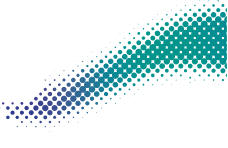Copyright © Petroliam Nasional Berhad (PETRONAS) (20076-K).
All rights reserved.
- PETRONAS 50
- Our Passion
- Sustainability
-
Progressing Energy
- Overview
- Exploration
- Development & Production
- Malaysia Petroleum Management
- Refining
- Chemicals
- Carbon Management
- Marketing, Trading & Retail
- Gas Business
- Liquefied Natural Gas (LNG)
- Gas & Power
- Innovation Gateway @ PETRONAS (iG@P)
- PETRONAS Ventures
- Technical Solutions
- SEEd.Lab
- Talent Development & Education
- PING
- Lubricants
- Investor Relations
- Our Stories

KUALA LUMPUR, 26 November 2019 – PETRONAS recorded lower earnings amid challenging market conditions and sustained pressure on commodity prices and margins. Despite the subdued earnings, the results reflect the resilience and ability of the Group’s businesses driven by its continued focus on commercial and operational excellence.
For the cumulative period ended 30 September 2019, PETRONAS Group recorded a 3 per cent drop in revenue at RM176.2 billion, primarily due to lower average realised prices for major products. This was partially offset by higher sales volume predominantly for LNG and petroleum products as well as the effect of the weakening Ringgit against the US Dollar exchange rate.
Profit After Tax (PAT) for the first nine months of 2019 decreased by 11 per cent from the same period in 2018, to RM36.4 billion, mainly due to lower revenue and net impairment predominatly recognised in our E&P segment driven by more conservative price outlook, partially offset by lower tax expenses.
Earnings Before Interest, Tax, Depreciation and Amortisation (EBITDA) slipped 7 per cent to RM73.5 billion, in line with lower profit before tax.
Total assets decreased to RM621.4 billion as at 30 September 2019 as compared to RM636.3 billion as at 31 December 2018.
Shareholders’ equity increased to RM388.1 billion as at 30 September 2019, compared to RM380.5 billion as at 31 December 2018, mainly contributed by profit generated during the period. However, this was partially offset by the final dividend declared during the year.
Gearing ratio decreased to 18.9 per cent largely due to lower borrowings following repayment of loan, while Return on Average Capital Employed (ROACE) dropped to 10.7 per cent from 12.0 per cent as at 31 December 2018, in tandem with the lower profit.
Capital investments (CAPEX) for the period totalled RM28.9 billion, largely attributed to Upstream projects in support of the Group’s growth strategies.
Compared to the corresponding quarter in 2018, the Group posted RM55.1 billion in revenue, primarily due to lower average realised prices for major products and reduced sales volume predominantly for crude oil and condensates. However, this was partially offset by the effect of the weakening Ringgit against the US Dollar exchange rate.
PAT dropped to RM7.4 billion during the same quarter, primarily due to lower revenue and net impairment on assets, which were partially offset by lower net product and production costs as well as lower tax expenses.
EBITDA stood at RM18.8 billion, in line with lower profit before tax.
CAPEX for the quarter was RM12.0 billion, mainly attributed to Upstream projects.
Outlook
The outlook for the industry remains challenging. This is driven by slowing global economy, geopolitical tensions and ongoing global trade issues, resulting in demand disruption. The Board expects the overall year end performance of PETRONAS Group to be affected by these factors.
Tan Sri Wan Zulkiflee Wan Ariffin, PETRONAS President and Group CEO:
Despite persistent market volatility, PETRONAS’ performance in this quarter demonstrates its resilience and ability as an integrated energy player in sustaining strong and reliable operations throughout the period.
We will remain focused on driving operational efficiency and commercial excellence across the Group in resolute execution of our three-pronged strategy.
While our performance will continue to be impacted by the challenging environment, PETRONAS’ financial position is expected to remain robust.
Operational Highlights – For the first nine months of 2019
Upstream
- Total production volume for the first nine months of 2019 was 2,328 thousand barrels of oil equivalent (boe) per day, slightly higher than the 2,313 thousand boe per day in the same period in 2018, mainly attributable to higher natural gas production, partially offset by lower liquid production from Malaysia.
- A total of twenty one projects have achieved first hydrocarbon, adding 79 thousand boe per day of new production to-date, comprising nineteen brownfields in Peninsular Malaysia, Sarawak, Iraq, Myanmar and South Sudan, as well as one greenfield in Sarawak and one unconventional project in Argentina.
- PETRONAS has made seven exploration discoveries during the period - five in Malaysia and two internationally in Indonesia and Egypt, including one significant gas discovery in SK410B Lang Lebah field, offshore Sarawak. In Malaysia, four PSCs were inked in total - PM407, PM415 and PM419 offshore Peninsular Malaysia as well as SB Block 3K offshore Sabah.
- Thirty three projects achieved Final Investment Decision (FID) including the Kasawari major gas development project offshore Sarawak, which comprised 27 projects in Malaysia and six projects internationally.
- Six new Production Sharing Contracts (PSCs) were inked in the first nine months of this year; four in Malaysia and two in Gabon, in addition to the acquisitions of 2 offshore blocks in Egypt.
- On 19 August 2019, PETRONAS Carigali Sdn Bhd’s (PCSB) subsidiary, Vestigo Petroleum Sdn Bhd (Vestigo), successfully removed a suction pile wellhead platform from the Ophir field, relocated and re-installed at the Jitang field, offshore Malaysia. The successful relocation of the wellhead platform in one piece without any further structural modifications was the first in the world and was accomplished within a record-breaking time of only three days.
- PETRONAS Carigali Gabon Upstream SA (PCGUSA), a subsidiary of PETRONAS, successfully acquired two offshore blocks in August 2019, namely F12 and F13 in South Gabon. The acquisition is aligned with PETRONAS’ Upstream strategy to grow its exploration portfolio in West Africa. PCGUSA holds 100 per cent participating interest and is the operator for both blocks.
Gas & New Energy
- Gas and New Energy (GNE) business continues to remain resilient amidst a challenging business environment, with strong operational performance across all business segments.
- Total LNG sales volume for the first nine months of 2019 was 5.3 per cent higher at 21.9 million metric tonnes as compared to 20.8 million metric tonnes in the same period in 2018, mainly attributed to higher production volume from PETRONAS LNG Complex (PLC) in Bintulu.
- LNG production for the first nine months of 2019 remained strong with an increment of 9.0 per cent at 20.6 million metric tonnes as compared to 18.9 million metric tonnes in the same period in 2018, contributed by higher feed gas supply and better plant performance.
- Malaysian average sales gas volume increased by 4.1 per cent in the first nine months of 2019, at 2,881 mmscfd, mainly attributed to higher demand.
- Overall Equipment Effectiveness (OEE) for GNE business stood at 96.8 per cent across all business segments with LNG assets and domestic operations recording an OEE of 96.2 per cent and 99.4 per cent respectively.
- Up to the third quarter of 2019, seven LNG cargoes have been loaded after the successful relocation of PFLNG SATU, the world’s first Floating LNG Production Unit to Kebabangan gas field in Sabah.
- PETRONAS Gas Berhad (PGB) continues to strengthen its gas market growth via the recently concluded sales agreement with Polyplastics Asia Pacific Sdn Bhd (PAP) for the supply of steam and extension of current electricity supply for 22 years.
- In solidifying PETRONAS’ position as a progressive LNG solutions partner focusing on customer-centricity across the value chain, GNE business has successfully performed five Gassing Up Cooling Down (GUCD) services at RGT Pengerang, to serve warm LNG vessels after ship dry-docking. In addition, PETRONAS has successfully completed two LNG break-bulking activities via ship-to-ship transfer in Malaysian waters to serve LNG buyers with requirements for smaller LNG parcels.
- Focusing on customer-centricity has also resulted in 2 initiatives to achieve FID. The Virtual Pipeline System (VPS) is designed to cater to off-grid customers while the LNG Bunkering solution aim to provide services to LNG fueled vessels across Malaysia, including transporting smaller scale LNG cargoes across the region.
- PETRONAS is primed in pursuing domestic and international renewables market share through the acquisition of a leading Singapore-based company, Amplus Energy Solutions Pte Ltd (M+), with a portfolio of distributed, renewable energy assets in Asia. With a total capacity of 600MW under operation and development, M+ is serving more than 150 commercial and industrial customers at over 200 locations across India, Middle East and South East Asia.
Downstream
- Despite ongoing market challenges, Downstream business continues to expand its growth strategies, developing innovative sustainability solutions and recording steady performance for the first nine months of 2019.
- OEE of 90.8 per cent was recorded in the first nine months of 2019 across all business segments with domestic refineries recording a slight improvement to 94.5 per cent compared to the same period in 2018, while the refinery in Durban, South Africa registered 85.6 per cent.
- The Petrochemical business recorded an improved Plant Utilisation in the first nine months of 2019, compared to the same period in 2018, recording 92.8 per cent with an overall production volume of 7.9 million metric tonnes, which also improved than last year mainly contributed by healthy feedstock supply and strong plant reliability.
- PETRONAS Chemicals Group Berhad (PCG) recently signed a Memorandum of Understanding with Cypark Resource Berhad (Cypark) for the development of a Solid Waste Modular Advanced Recovery and Treatment (SMART) Waste-to-Energy (WTE) plant in Malaysia as part of our initiative to provide solutions for effective plastic waste management. This collaboration supports the Malaysian Government’s aspiration of having at least one WTE facility in each state in Malaysia.
- Overall, marketing sales volume continues to improve, recording a total sale of 18.9 billion litres, with more than 60 per cent contributed by PETRONAS Dagangan Berhad (PDB). PDB’s overall sales volume improved by 5.8 per cent compared to the same period in 2018, attributed by the launch of PETRONAS Primax 95 with Pro-Drive, aggressive Smartpay sales, and higher demand from commercial clients. PETRONAS Lubricants International (PLI) also had an increase in sales volume, contributed by better plant performance and higher sales of Base Oil.
- PDB’s Setel application, the first e-payment solution for fuel purchases continues to provide a seamless and frictionless experience to customers with the latest feature of Mesra points fuel redemption. The improved feature on Setel is the next step in integrating the refuelling process onto a single platform, now available at more than 270 PETRONAS stations in Klang Valley. Currently, Mesra offers the highest conversion rate for a fuel loyalty programme in Malaysia, with members enjoying three points for every litre of fuel purchased.
- Venturing into the hybrid market, PLI recently introduced a new range of PETRONAS Syntium with °CoolTech™ lubricants, its first-ever formulation that extends to hybrid vehicles, specially formulated to better perform against excessive engine heat for improved engine performance and efficiency. The range comprises the premium low-viscosity PETRONAS Syntium 7000 Ultimate Series featuring PETRONAS Syntium 7000 Hybrid with °CoolTech™, the company’s first oil for hybrid vehicle.
- Pengerang Integrated Complex (PIC) is in the middle of start-up activities and expected as planned to be in commercial operations by end of 2019. Only the refinery’s Atmospheric Residue Desulfurisation (ARDS) unit affected by fire incident in April 2019 is expected to commence operation by mid-2020.
- As at 30 September 2019, PIC achieved 99.8 per cent progress and successful start-up of its steam cracker complex, which contains some of the country’s most powerful machinery; the Steam Cracking Heater with six units of 180 MW furnaces, the 73MW Charged Gas Compressor (CGC), and the record-breaking 92MW Enhanced Binary Refrigerant (EBR) compressor.
Issued by
Media Engagement Department
Group Strategic Communications
PETRONAS




